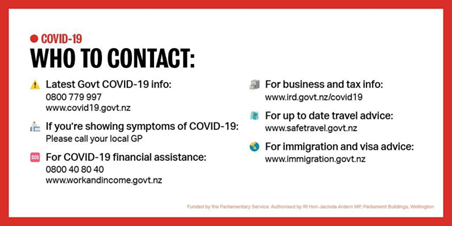As librarians we need to encourage the sharing of accurate information that will help our users stay as safe as possible, during the spread of the virus. Having links to reputable sites on our online pages (e.g. https://www.health.govt.nz/ and www.covid19.govt.nz) and amplifying the key self- and community protection methods is vital. Fact checking statements and posts is also important, to allow library staff to advise users about the best resources to utilise (in person or on-line).
A rights-respecting response to COVID-19 needs to ensure that accurate and up-to-date information about the virus including service disruptions, access to services, and other features of the response to the outbreak are accessible to all and readily available. Governments should fully respect the rights to freedom of expression and access to information, and only restrict them as international standards permit. Governments should also ensure that the information they provide to the public regarding COVID-19 is correct, timely, and consistent with human rights principles. This is important for addressing false and misleading information.
Libraries are already looking at alternatives to access to print information and entertainment via our physical spaces, and increasing access to and awareness of online resources.



 RSS Feed
RSS Feed